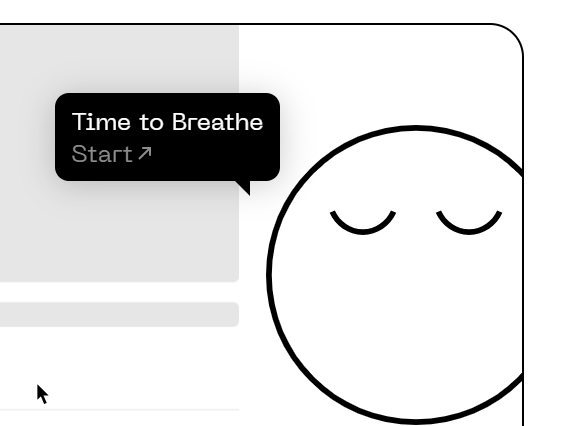Artificial intelligence (AI) has emerged as an indispensable force, vastly enhancing our daily lives in ways once deemed unfathomable. By optimizing time management and providing solutions to complex challenges, AI has fundamentally reshaped how we interact with our digital devices. These enhancements, when integrated into applications, are known as extensions.
Let’s delve into the digital sphere of AI extensions, address safety concerns, and unveil their profound impact on our daily lives.
What exactly are AI extensions?
AI extensions are additional functionalities or capabilities that can be added to an existing AI system or platform. These extensions are designed to boost the AI’s performance, expand its range of tasks, or adapt it to specific applications. They can include new algorithms or plugins that enable the AI to perform language processes, image recognition, or data analysis. They allow AI systems to evolve and become versatile, spanning a wide spectrum of industries, encompassing healthcare, finance, and entertainment. A notable example is the Grammarly browser extension, which functions as a grammar-checking assistant, adjusting sentence structure while online. In essence, AI extensions amplify the capabilities of existing programs on your devices.
AI extensions’ impact on everyday life
Automated decision-making systems have flooded various aspects of our day-to-day, ushering in transformative changes across diverse sectors. The ongoing question remains whether they complement rather than replace human roles, particularly in areas demanding insight, responsive intelligence, and public relations. AI extensions are dramatically shifting our approach to tackling responsibilities, from integration to download.
Currently, extensions like Fireflies.ai are being employed to enable users to optimize their time. Fireflies.ai acts as a voice call note-taker, instantly capturing and recording meetings on web-conferencing platforms. This algorithmic-learning voice assistant transcribes meetings, facilitating revisitation of discussions and effective collaboration. It improves output and promotes precise communication in professional contexts. Its goal is to integrate into users’ routines, simplifying time management and task completion.
Another example, is Reclaim.ai, which seamlessly schedules meetings, prioritizes tasks, and adapts to evolving plans in Google Calendar. It allows users to blend work, personal commitments, and healthy habits into busy itineraries. These tools are integrated into the Chrome browser and are designed specifically for work-related tasks, such as transcription and organizing work agendas. To sum up, they bridge human ingenuity and technological progress, significantly influencing daily decisions.

Boost your health: how AI extensions are reshaping your day
However, if you need a more mindful online companion, you may consider Breathhh – an extension really owning its name. Breathhh promotes screen-time awareness through browser notifications by analyzing your internet habits. It offers mindfulness exercises, like guided breathing and mood tracking, to encourage a digital lifestyle with regular breaks.
Parents, in particular, may find this tool invaluable for monitoring and managing their children’s online activities. The harmful effects of doom scrolling on mental and social behavior are well-known, and the add-on assists by determining ideal break times based on factors like your website usage, the website’s nature (e.g., work-related or entertainment), and your unique browsing patterns, enabling personalized timely interventions.
In healthcare, AI-driven automation tools are poised to revolutionize the industry by enhancing decision-making, improving efficiency, and confronting a wide range of technical problems. As AI extensions rapidly blend into our habits, we stand at the threshold of a dynamic shift in how we approach pain points, health matters, and responsibilities moving forward.
But are AI extensions safe?
While AI extensions offer considerable benefits, addressing safety concerns, particularly in cybersecurity and privacy is necessary. Incogni (2023), a notable data brokerage firm, conducted a study, analyzing 70 AI-based Chrome extensions across seven major categories, revealing concerning findings.
- High-Risk Potential: A staggering 69% of these extensions demonstrated a high-risk potential impact, indicating severe cybersecurity vulnerabilities if exploited maliciously.
- Writing Extensions: All 10 AI-powered writing extensions assessed in the study also showed a high-risk impact.
- Combined Risk: Among the extensions, 10 exhibited both high-risk impact and high-risk likelihood, making them particularly susceptible to turning malicious.
- Data Collection: Over 59% of extensions were found to collect user data, with 44% gathering personally identifiable information.
These findings highlight the serious cybersecurity risks of compromised Chrome extensions, stressing the critical need for caution and robust safety measures during adoption. Risky or third-party extensions can result in data breaches, unauthorized access, privacy violations, and loss of digital footprint. Likewise, heightened awareness of these digital hazards may trigger increased scrutiny by data protection authorities, possibly resulting in regulatory and legal consequences for companies. Developers and extension-producing firms need to prioritize digital protection and privacy.
These discoveries could incentivize further research, prompting security experts to develop more effective tools and methods for user protection. Notably, there is a lack of emphasis on educating consumers and providing guidance for safeguarding online security and privacy. It’s evident, that the identified risks linked to AI Chrome extensions have consequences for individual users, developers, regulatory authorities, and the broader tech landscape.
Unveiling ethical challenges and labor transformations
Beyond cybersecurity concerns, automated decision-making add-ons are sparking ethical inquiries – particularly regarding their impact on children, education, and society at large. These inquiries encompass safeguarding children’s privacy, resolving educational inequalities, mitigating biases, and defining data ownership. Simultaneously, they’re wielding a profound influence on the labor force and enhancing human skillsets. While they supposedly offer potential gains in productivity, concerns arise about possible job displacement and the need for upskilling and reskilling in a changing job market. Why outsource a role when you can automate it, right?
Even in education, these extensions facilitate personalized learning – albeit raising concerns about content filtering, long-term consequences, and their effect on critical thinking skills. These challenges stress the importance of transparency and a proactive approach as they steadily enmesh themselves in society. Despite the fact that administrative roles may evolve, the primary objective remains to support educators and learners rather than replace them.

Mindful adoption of AI extensions: striking a balance in the digital age
To round things off, as AI extensions integrate into our apps, providing solutions for complex challenges, thoughtful consideration is crucial. Although these extensions improve our digital capabilities, their accessibility demands mindful use that prioritizes autonomy and security! While adaptive learning expansions continue to infiltrate every facet of our lives, we confront moral dilemmas, potential innovation slowdowns, and the looming issue of job displacement. Despite their substantial benefits, it’s prudent to approach them cautiously. As pioneers of this technology, we must ensure that the advantages outweigh the ethical and societal costs. By skillfully navigating the adoption and regulation of these tools, we can harness their potential while safeguarding our boundaries and preserving our humanity in this digital age.
Sources
Morelli F. (2023, March 21). What Is Cybersecurity? Incogni. [Blog Article]. Retrieved from https://blog.incogni.com/what-is-cybersecurity/
Murray, A. (2023, September 14). 6 AI Tools to Supercharge Your Work and Everyday Life [Feature Article]. ZDNet. Retrieved from https://www.zdnet.com/article/6-ai-tools-that-can-supercharge-your-everyday-life-and-work/
Check out:
Netflix’s ‘One Piece’ Might’ve Beaten the Live-Action Curse – The White Rabbits
The ‘New Normal’: Climate Change and Its Link to Canada’s Worst Wildfire Season







Be First to Comment